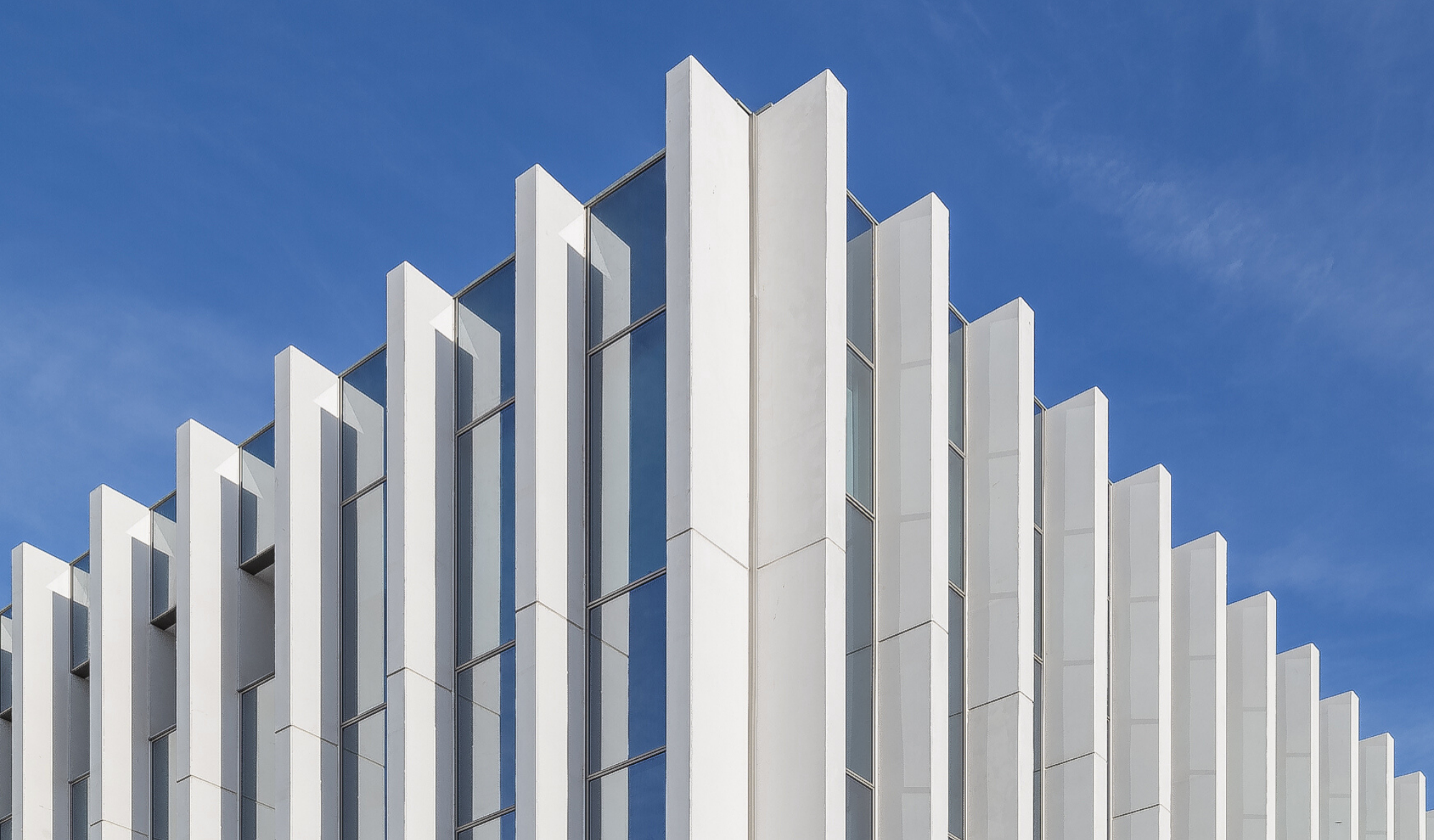
In March 2019, the new Biotech Building at Universidade Católica's Campus Foz came to life. Its doors were opened to the Alchemy project team, which includes Amyris Portugal and Faculty of Biotechnology researchers. In the school year beginning September 2019, students, professors, researchers, and staff were also welcome.
Its inauguration took place on February 7, 2020, during the celebration of the National Day of UCP. It was the Portuguese President, Marcelo Rebelo de Sousa, who inaugurated this new building which has more than 90 laboratories and classrooms.
The building represents the importance of research and internationalization to the University. The transitionof the Faculty of Biotechnology from Campus Asprela to Campus Foz allows for the interconnection of the various areas of knowledge on one campus, with the possibility of endogenizing all its cultures and worldviews.
The Biotechnology Building on Campus Foz was built from scratch to accommodate the labs, classrooms, but especially the faculty, staff, students and alumni of the Faculty of Biotechnology.
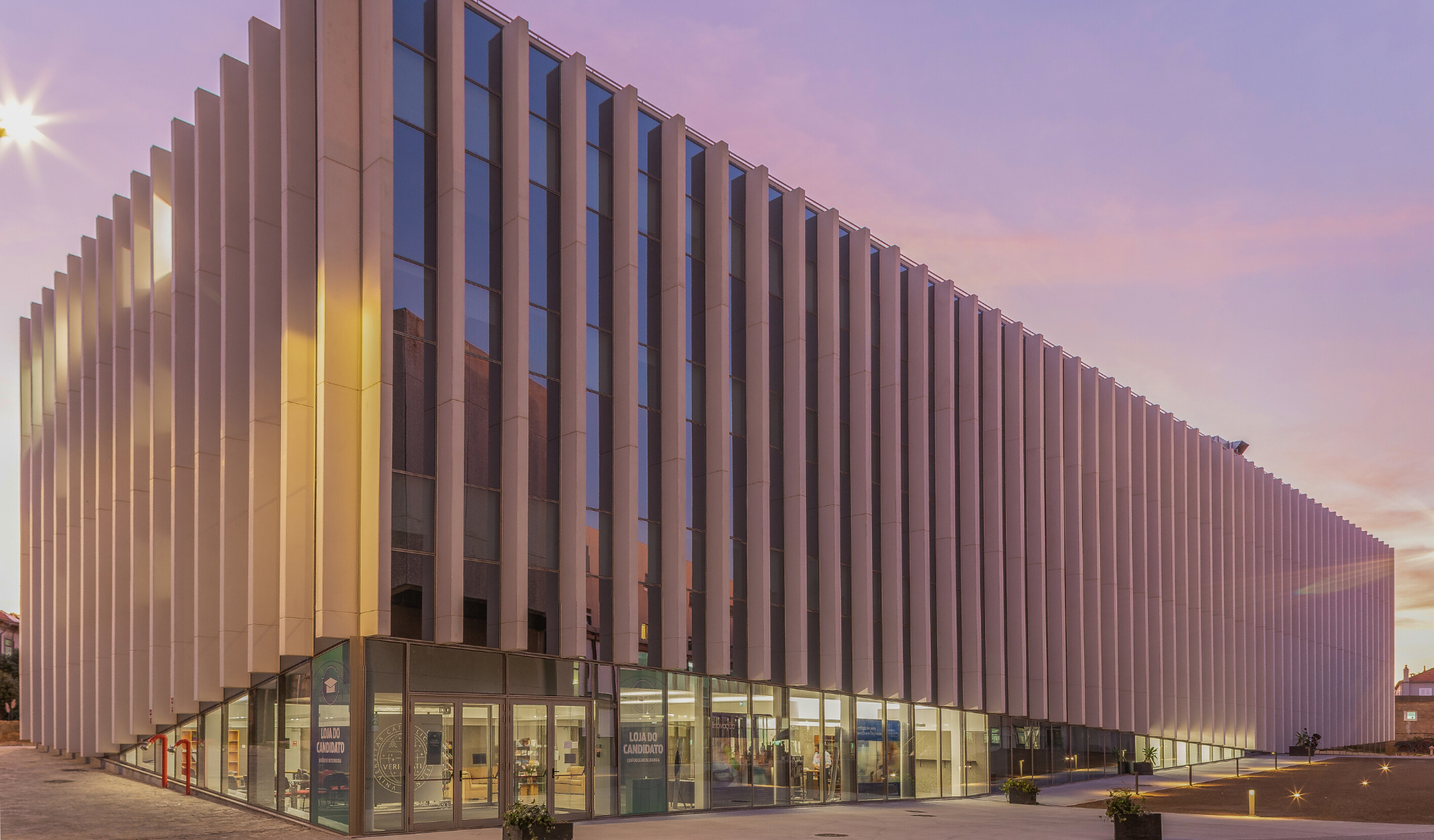
It all started in June 2016 when UCP and Amyris signed a protocol to create a Biotechnology HUB headquartered at Católica's Faculty of Biotechnology, in Porto. The plan was to create a European Center of Excellence in Byproducts, based in the Faculty of Biotechnology, thus bringing to the north of the country development capacity in Bioengineering and Microbiology.
The agreement between the two entities, signed by former Rector Maria da Glória Garcia and Amyris CEO John Melo, in the presence of the United States of America Ambassador Robert Sherman, became reality with the construction of the Biotech Hub.
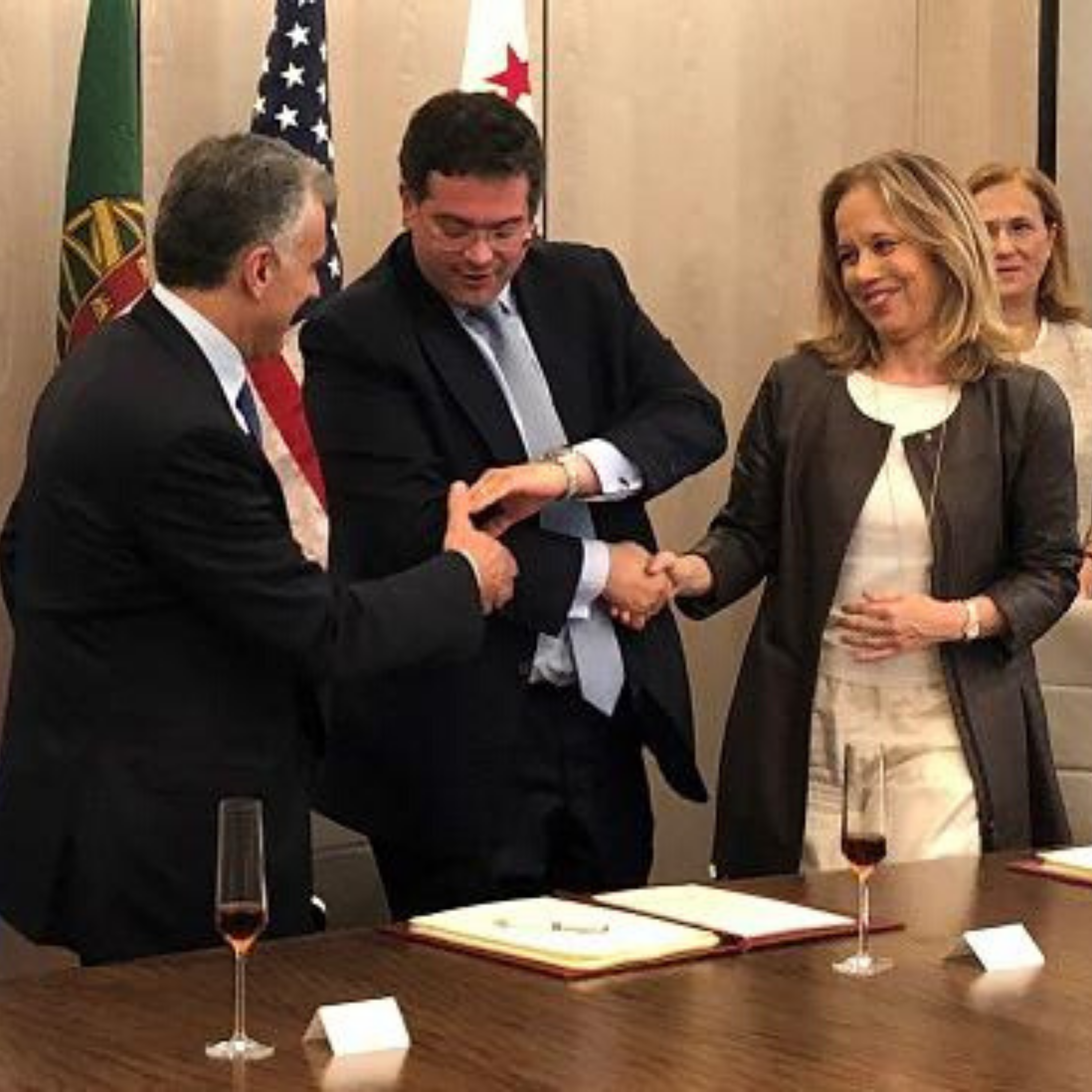
Besides that protocol, a contract was signed on June 2018, in Silicon Valley, USA, in the presence of Portuguese Prime-Minister António Costa, enabling the research project Alchemy – a strategic partnership between UCP, Amyris Bio Products Portugal, subsidiary of Amyris, Inc., and the Portuguese Government.
The Alchemy project aims to contribute to the optimization of the efficiency of the biomolecule production process and to investigate new applications for the by-products / residues resulting from this process, thus enhancing the development of new molecules of high commercial interest, particularly for the food industries, cosmetic, industrial and pharmaceutical. At the same time, the project aims to promote technology transfer that will translate into a growth of competitiveness of companies in the area of bioeconomy.
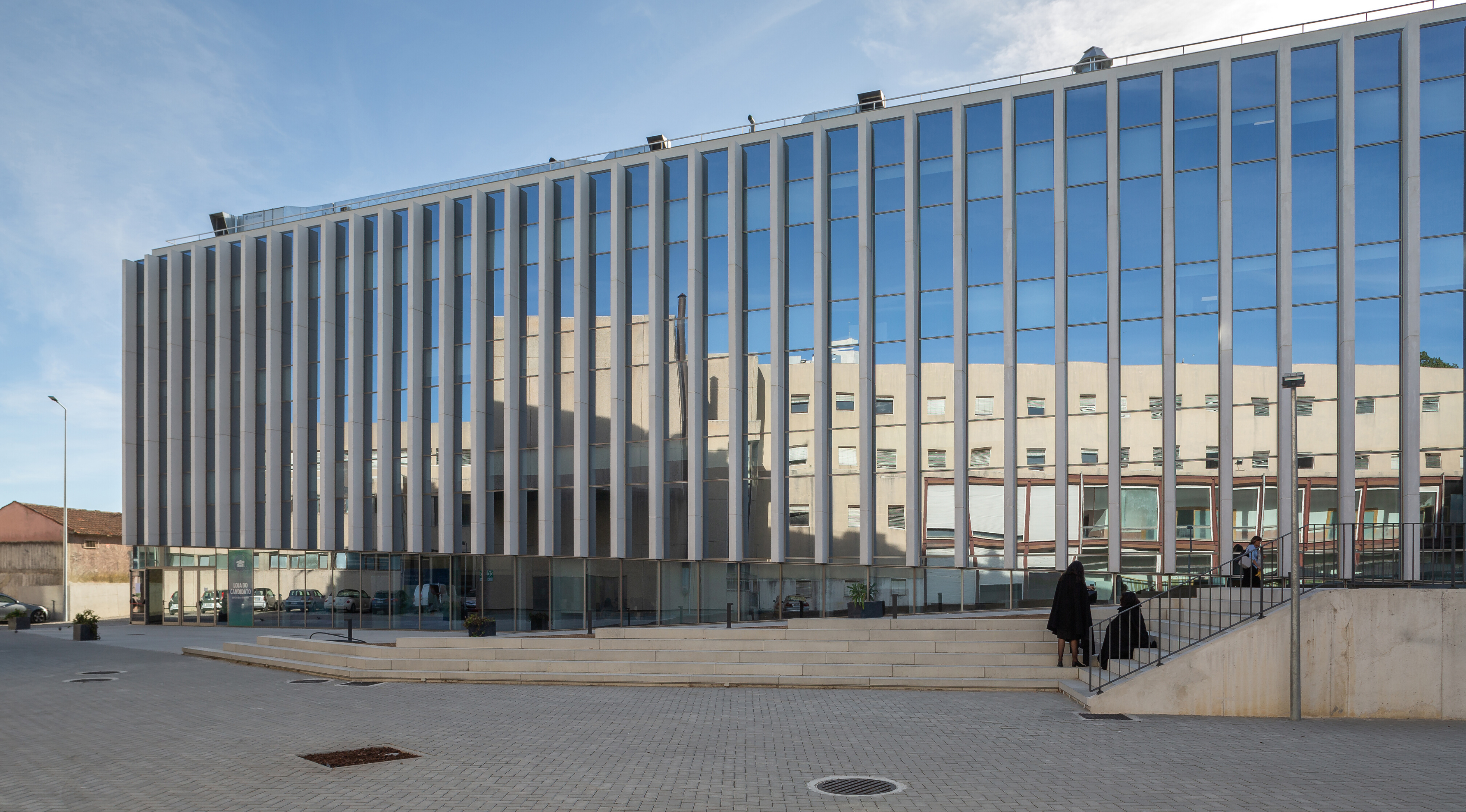
This project involves around 100 researchers between the two entities, aggregating several competences namely bioengineering, microbiology and bioanalytical.
The project's first phase lasts 5 years and materializes in a center of excellence in biotechnology, promoting Portugal at the forefront in the areas of bioeconomy and circular economy. This project, which has an investment of 43 million euros for Porto in research and development (R&D), will have impact and externalities of great importance to other companies and sectors of activity in Portugal.
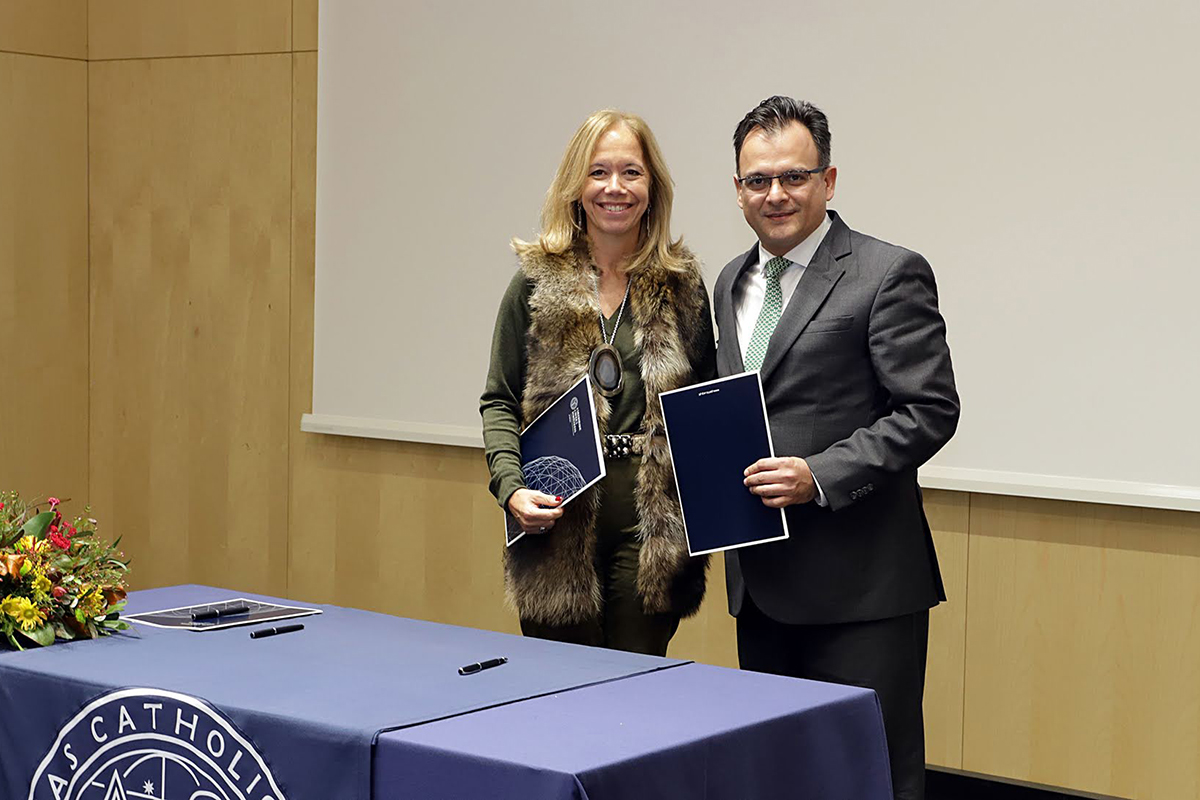
A Escola Superior de Biotecnologia e Biorbis asseguraram uma parceria entre o Centro de Biotecnologia e Química Fina da Escola Superior de Biotecnologia da Universidade Católica Portuguesa e a Biorbis.
Isabel Capeloa Gil, reitora da Universidade Católica Portuguesa, partilhou a enorme importância desta parceria que é lançada “num momento em que a Universidade está a recentrar a sua missão não apenas na investigação, onde somos excelentes, mas também em fazer da Universidade um espaço de reinvenção contínua, integrando uma diversidade de ideias, experiências e práticas, e em particular reforçando as pontes entre disciplinas, comunidades, e muito especificamente com a indústria e os mercados.” Isabel Capeloa Gil reforçou também que “esta jointventure nasce num momento em que se vê uma transição mundial para a bioeconomia.”
A colaboração entre a Universidade Católica Portuguesa e a Biorbis tem um horizonte de 5 anos e terá início com a integração de 40 investigadores para desenvolverem um projeto privado de investigação – o CIRCULAS. Este programa prevê um investimento privado inicial de 3 milhões, com um potencial de 23 milhões nos próximos 5 anos, no projeto de investigação e inovação que procura desenvolver a próxima geração de biomoléculas seguras, sustentáveis e de elevado valor.
A assinatura do memorando de entendimento entre a Universidade Católica Portuguesa e a Biorbis decorreu no dia 20 de novembro de 2023, no Auditório Comendador Arménio Miranda, na Escola Superior de Biotecnologia da Universidade Católica Portuguesa.

O Centro de Biotecnologia e Química Fina participa no projeto europeu de pesquisa "Orchestrating Food System Microbiomes to Minimize Food Waste," também conhecido como "Microorc." Este projeto ambicioso envolve a colaboração de 18 parceiros de nove países europeus, com o objetivo de aprimorar a sustentabilidade no processamento alimentar, prolongar o prazo de validade dos alimentos e reduzir o desperdício alimentar.
Os objetivos do projeto passam pela substituição de conservantes químicos sintéticos e o desenvolvimento de soluções de embalagem inovadoras
A Universidade Católica Portuguesa desenvolverá modelos de análise preditiva que incorporam informações do microbioma, permitindo prever com precisão o tempo de vida útil dos alimentos.
Financiamento e Parcerias:
O Microorc é financiado pela Comissão Europeia através do Programa HORIZON e conta com diversas parcerias estratégicas, incluindo a Vizelpas – Comércio de Artigos Plásticos Limitada, Christian Hansen, bioMérieuxSA, Lusiaves-Indústria e Comércio Agro-alimentar, Primor Charcutaria Prima, Nofima, e CiaoTech S.r.l, especializada em disseminação, inovação e atividades de exploração.
O Microorc teve início em novembro de 2023 e está programado terminar em outubro de 2027.
